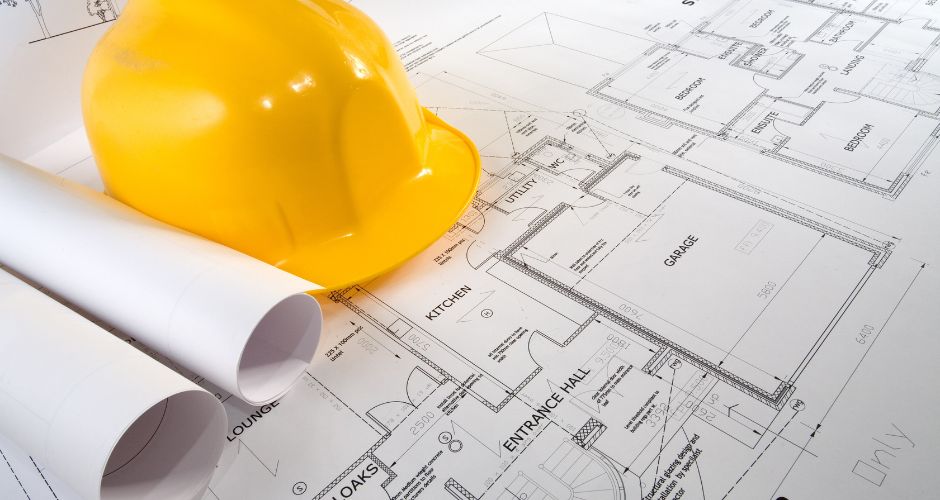Pre-Construction Checklist: What to Know Before You Build

Building your dream home or starting a commercial construction project is a big decision-one that involves time, money, and careful planning. Before you lay the first brick, there’s a crucial phase that can make or break the entire process: pre-construction.
This is where your vision takes form on paper, permits are secured, budgets are finalized, and all key players are aligned. Let’s dive into the ultimate pre-construction checklist to ensure your project starts off strong.
Why Is the Pre-Construction Phase Important?
Think of the pre-construction phase as the foundation for everything to come. Without it, even the most skilled builders can end up dealing with:
- Budget overruns
- Design flaws
- Legal issues
- Timeline delays
The goal is to minimize surprises and maximize clarity-ensuring that construction proceeds smoothly, safely, and within your budget.
The Ultimate Pre-Construction Checklist
Here’s a step-by-step guide to what you should check and plan before the actual construction begins:
1. Define Your Project Goals and Budget
- What are you building-a home, office, retail space?
- What’s your desired timeline?
- How much are you willing to spend?
Clearly defining your vision, must-haves, and nice-to-haves helps your team design a realistic plan. Also, set aside 10–15% of your budget as a buffer for unforeseen costs.

2. Choose the Right Location
- Is the land legal and properly zoned for construction?
- Are utilities (water, power, sewage) easily available?
- Is the land free of disputes?
Always perform due diligence on the property. Consult a real estate lawyer to verify land documents, encumbrances, and compliance with local municipal norms.
3. Hire a Qualified Architect and Contractor
- Choose professionals with experience in your type of project.
- Check reviews, past projects, and licenses.
- Make sure they are insured and follow safety protocols.
Clear contracts and scopes of work should be drawn up before construction begins. Discuss everything-cost estimates, roles, timelines, and deliverables.
4. Get a Soil Test and Land Survey Done
Before you dig:
- Conduct a soil test to understand the bearing capacity and water table levels.
- Get a land survey done to define the exact boundary and topography.
These reports influence your foundation design and help avoid land-related disputes with neighbors or local authorities.
5. Design and Approve Architectural & Structural Plans
- Finalize the floor plans, elevation, and structure with your architect and engineer.
- Ensure that the design complies with local building codes.
- Submit the plans for municipal approval.
Skipping approvals may lead to hefty fines or demolition orders later. Always get your blueprints approved by the local development authority or town planning department.
6. Secure All Permits and NOCs
Depending on your location, you may need approvals from:
- Local municipal corporation
- Environmental department (if in an eco-sensitive zone)
- Fire department (for commercial buildings)
- Electricity & water boards
Start this process early, as permits can take weeks to months.
7. Create a Detailed Project Schedule
Break your construction process into phases:
- Site preparation
- Foundation
- Framing
- Plumbing & electrical
- Finishing
Work with your contractor to create a realistic construction timeline and track key milestones.
8. Estimate Total Project Costs
Have your contractor and architect prepare a Bill of Quantities (BOQ) which includes:
- Material costs
- Labor charges
- Fees (permit, architect, consultant)
- Equipment & machinery rental
This gives you a full picture of your financial needs and helps avoid sudden surprises.
9. Plan for Utilities and Infrastructure
Coordinate with local providers for:
- Water and drainage systems
- Electrical and internet wiring
- Gas pipeline connections
- Rainwater harvesting or solar panel installation (if needed)
Planning these in advance ensures they integrate seamlessly with the building design.
10. Sign Legal Agreements
Don’t start without:
- A signed construction contract
- Payment terms and project deadlines
- Insurance coverage for property and workers
Legal documentation protects all parties and keeps expectations aligned.
11. Set Up a Project Communication System
Whether you’re building a house or a commercial site, regular updates are crucial. Use:
- Project management software (like Trello, Buildertrend)
- WhatsApp/Telegram for quick updates
- Weekly meetings for tracking progress
Transparency helps avoid misunderstandings and costly rework.
Bonus Tips Before You Start Building
- Track material prices: Cement, steel, and tiles fluctuate-lock in good rates early.
- Monitor site safety: Make sure your contractor follows safety laws and uses quality PPE.
- Document everything: Photos, invoices, inspection reports-keep digital and physical copies.
FAQs
Q1. How long does the pre-construction phase take?
Answer: It typically takes 1 to 3 months, depending on project size, permit delays, and design complexity.
Q2. Do I really need a soil test for home construction?
Answer: Yes. A soil test determines the foundation type and ensures structural safety. It’s crucial, especially for clay-heavy or rocky areas.
Q3. Can I start construction without building plan approval?
Answer: No. Construction without approval is illegal and can result in penalties or demolition. Always get municipal approvals first.
Q4. What’s the most common mistake people make in pre-construction?
Answer: Underestimating costs and skipping detailed planning. Many people rush into building without clear budgets, permits, or contracts.
Q5. What tools or apps can help in the pre-construction phase?
Answer: You can use apps like AutoCAD (for design), CoConstruct or Buildertrend (for project management), and Google Sheets (for budgeting and checklists).
Conclusion
Pre-construction isn’t just a formality-it’s a critical foundation that ensures your project stays on track, within budget, and free from legal or technical surprises. With this checklist in hand, you’re one step closer to building with confidence.
Whether you’re a homeowner or a builder, planning thoroughly before you build saves time, money, and stress down the road.
Related Articles:






